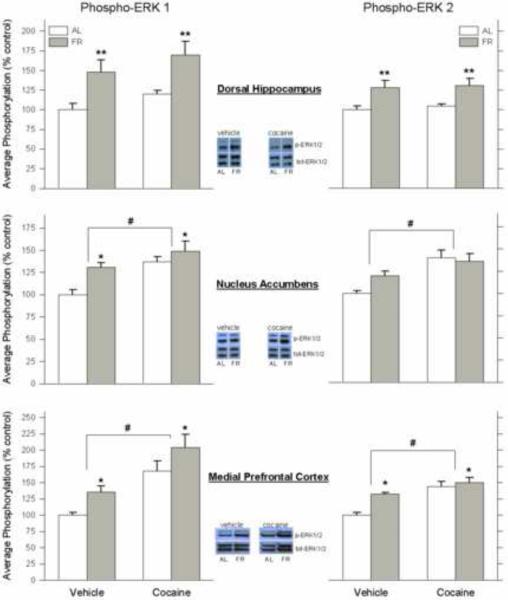Figure 4.
Effect of chronic food restriction on brain regional activation of ERK1/2 MAP kinase during a CPP conditioning session preceded by injection of cocaine or vehicle. Effects of chronic food restriction on ERK1 and ERK2 MAPK phosphorylation in dorsal hippocampus (top, left and right, respectively), nucleus accumbens (middle), and medial prefrontal cortex (bottom). Ad libitum fed (AL) and food-restricted (FR) rats were injected with cocaine (7.0 mg/kg, i. p.) or vehicle, immediately placed in one side compartment of a CPP apparatus and sacrificed following the 15-min conditioning session. Lysates were immunoblotted with anti-phospho-p44/42 MAPK or anti-p44/42 MAPK antibodies. Following densitometry, intensities of bands corresponding to phospho-ERK1 and 2 for each subject were divided by the intensities of the corresponding total ERK bands to correct for small differences in protein loading. Results (mean ± S.E.M.) are expressed in comparison to the normalized control, which was defined as the AL group injected with vehicle. Representative blots (from top to bottom) correspond to phospho-p44 ERK1, phospho-p42 ERK2, total p44 ERK1 and total p42 ERK2. FR greater than AL across drug treatments, **p<.001, *p<.01. #Cocaine greater than saline across diet treatments, p<.001. n=6 per group.

